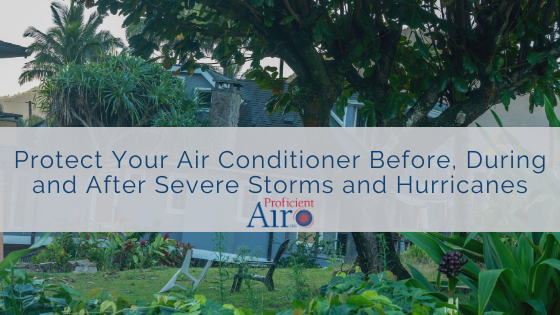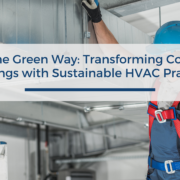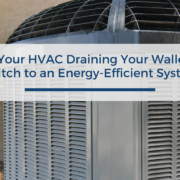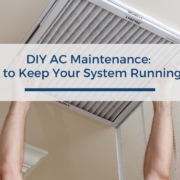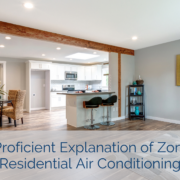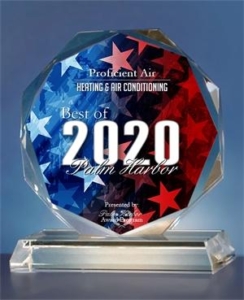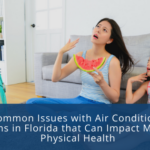Protect Your Air Conditioner Before, During and After Severe Storms and Hurricanes
With all of the mayhem surrounding the coronavirus and reopening the economy in Florida, many people have been distracted from the beginning of our annual hurricane season which kicks-off June 1st.
When the first named hurricane of 2020, Arthur, spun up in the Atlantic in May, thankfully Florida was spared as it skirted past our peninsula paradise, and pounded the coast of the Carolinas with torrential rain on its way out to sea.
According to a recent report in Patch, the National Oceanic and Atmospheric Administration [NOAA] acting Administrator, Neil Jacobs, predicts the 2020 hurricane season to be “above-normal” and “extremely active,” with as many as 13-19 named storms expected.
In as much as the Tampa Bay area has fared quite well for many decades, hurricane preparedness is an extremely important consideration for families, and it should include preparing your air conditioner for severe storms and extreme weather conditions.
Four elements of extreme weather and storms include humidity, strong winds, obstructions, and flooding, all of which can negatively impact your air conditioner and, ultimately, your family’s comfort.
- Humidity. Our tropical climate is particularly prone to higher levels of humidity, especially before, during, and after seasonal storms. If your air conditioner is functioning properly, it efficiently cools and removes moisture from the air, so your home or office climate feels less thick and sticky and much more comfortable. An inefficient air conditioner will work harder to remove the moisture, which shortens the life of the air conditioning unit and drives-up energy costs. Moreover, if your air conditioning unit is too small for your residence, it may not have the ability to remove all of the moisture in the air. A dehumidifier may be a solution. Regular air conditioning maintenance will identify efficiency issues to help protect you, your family, and your HVAC investment.
- Strong Winds. The problem with tropical-force winds is their very strength, which can knock the condenser off its concrete slab making it a dangerous projectile. Additionally, they carry airborne debris, large and small, that can damage the compressor’s metal casing, the fan’s grill, and possibly, even the fan blades if debris gets forced into the metal housing.
- Obstructions. If debris gets thrown against the outdoor compressor by wind or water, or worse, is forced inside the metal housing, it can block the air vents, and damage fan blades, electrical components, and refrigerant lines. Also, yard décor, weeds, rodents, bird nests, anything that comes in contact with the compressor, or minimizes the airflow to the unit, will inhibit the air conditioner from operating efficiently; as well as promote mold growth, which compromises the integrity of the internal components.
- Flooding. Living on the West Coast of Florida, we do experience flash flooding after severe and tropical storms, and even more so, after hurricanes hit. There is nowhere for the water to do go, but wherever it naturally flows along the coast! When torrential rainfalls, the air conditioning compressor is constructed to handle the water. Flooding, on the other hand, can cause serious damage to your cooling system. You can cover the unit with something other than plastic, in an effort to protect it from becoming submerged in heavy floodwaters. However, the best idea is to create a drainage system that will channel the water away from the air conditioner. If the compressor does succumb to floodwaters, do not power it on when the waters recede! Contact a highly-trained air conditioning service technician at Proficient Air to inspect the unit first.
Now that we have more information about the key elements of severe weather that can negatively impact your air conditioning unit in the Tampa Bay area, there are four ways you can preserve your family’s comfort and protect your air conditioner before, during and after severe storms to limit damage to the unit and prevent lapses in functionality, once electricity is restored.
- Crank-up the A/C. Tampa Bay is the lightning capital of the world, and we know storms can bubble-up at any given time during the summer months. However, when severe tropical storms are in the forecast, consider turning your thermostat to a lower setting than normal to extra-cool your home. Make sure all windows and doors are tightly closed, so cool air doesn’t escape, and should you lose power, your home will remain more comfortable for a longer period of time.
- Prep Outdoor A/C Component. The outdoor air conditioner compressor component is typically found located on a concrete slab. It should be properly stabilized with hurricane straps to prevent the unit from becoming a projectile during strong storm winds. Be sure to cover the compressor to protect it from flying debris and excess water, should flooding occur, but always avoid wrapping the unit in plastic, which can trap moisture and cause even more damage.
- Protect Electrical Components. If you do not have your air conditioner plugged into a surge protector, it is strongly encouraged. Power surges can significantly damage the wiring and electrical components, which can render your system powerless.
- Shut-down the A/C. Once you have cooled your home, strapped and covered the outdoor compressor and applied an electrical surge protector, power-off the unit prior to the storm’s arrival.
When the storms have passed, there are specific steps to take before turning your air conditioner on again.
- Uncover the A/C. After a powerful tropical storm or hurricane and BEFORE YOU TURN ON THE A/C UNIT, it is crucial to REMOVE THE COVERING FROM THE OUTDOOR COMPRESSOR TO RESTORE AIRFLOW and check for damage from flying debris and flooding from extreme rain. If you notice damage of any kind, contact the professionals at Proficient Air before turning your air conditioner back on.
- Check A/C Components. If there were power outages and excess lightening, be sure to check the electrical components to make sure they were not negatively impacted.
- Call for Proficient Air Assistance after Flooding. As stated above, if you have experienced flooding and the air conditioner compressor has been submerged in water, DO NOT restore power to the unit or you could escalate the damage. It is recommended you call your air conditioning specialists in the Tampa Bay area, Proficient Air, to inspect the system first.
We encourage you to adhere to a regular air conditioning maintenance program in the Tampa Bay area, to keep your air system running effectively and efficiently, especially after severe storms and hurricanes. Our skillfully-trained Proficient Air service technicians are expertly-trained to inspect the primary components of all brands of air conditioners, identify issues, and offer solutions, even if we didn’t install the system.
With Proficient Air, you can rest assured your family will stay cool and comfortable, before, during, and after severe storms, tropical depressions and hurricanes impact the Tampa Bay area.
If your air conditioner is under warranty, Proficient Air honors warranty repairs on most equipment, whether we installed it or not. Warranties only cover parts, however, and are subject to a warranty fee. Labor is an additional charge with warranty repairs.
Proficient Air in Palm Harbor offers a variety of high-quality maintenance contracts, specifically tailored to your needs and budget. Protect your HVAC investment and keep your home and family cool, comfortable, and energy-efficient all summer long, with Proficient Air. Call us today: 727.386.2732

